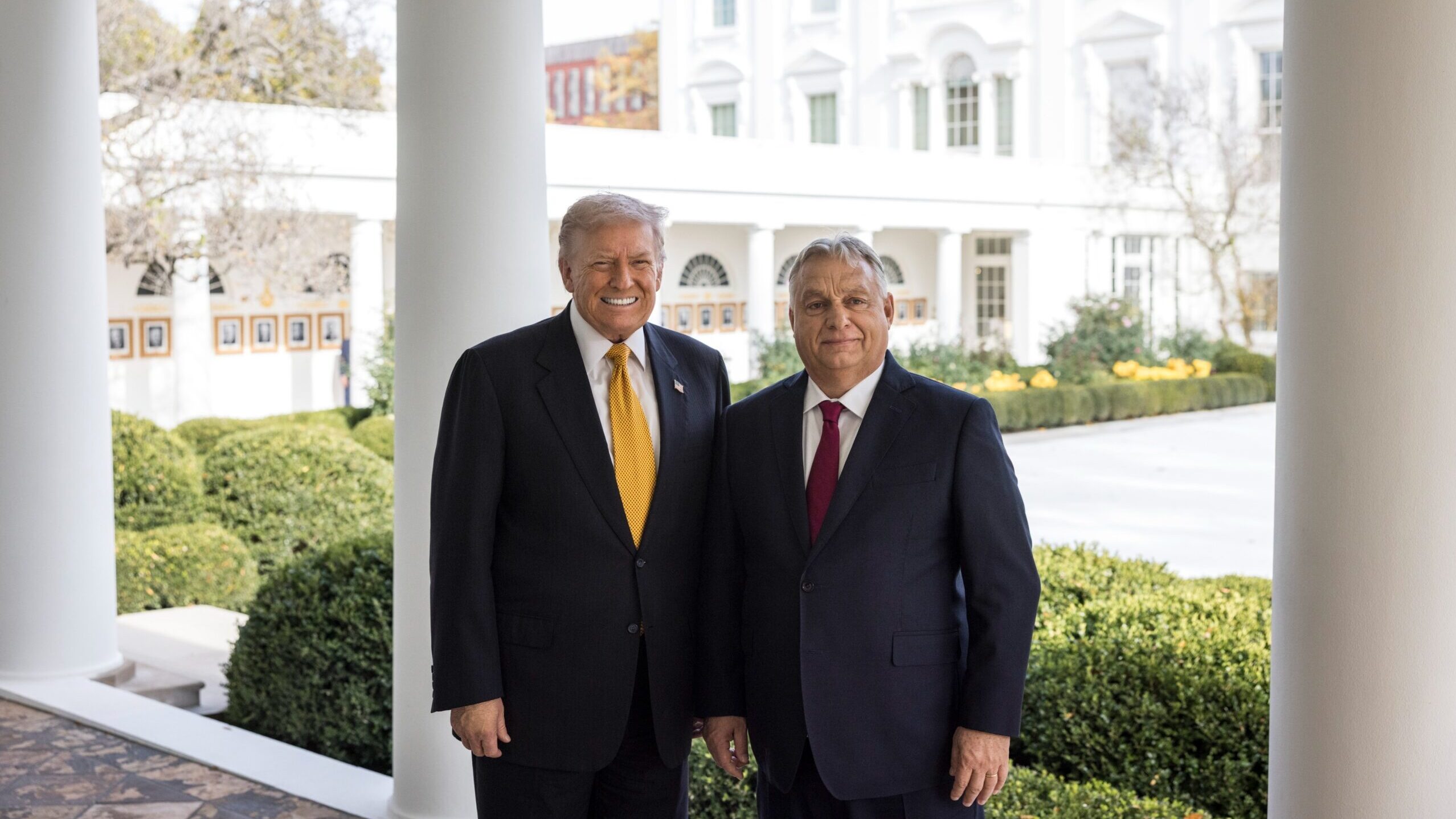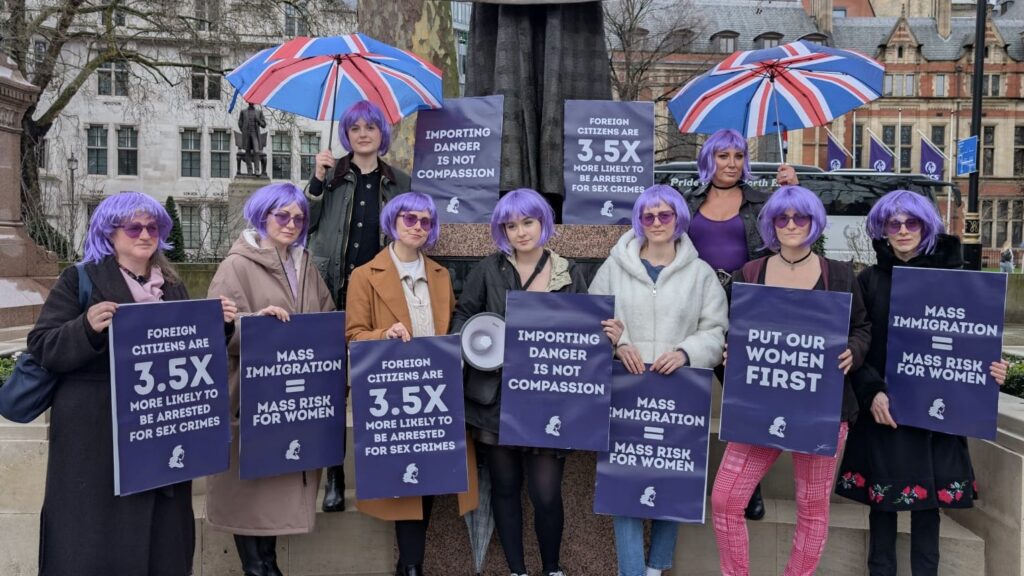The meeting between Hungarian Prime Minister Viktor Orbán and US President Donald Trump, and its outcomes, sent a clear message to the globalist progressive elites in both America and Europe: Washington under Trump is prepared to protect sovereignist, patriotic governments that share its common values of Christianity, family, and nation from liberal attempts to undermine such leaderships. This has given an entirely new framing and significance to the upcoming Hungarian parliamentary elections in 2026.
‘We are now under an American protective shield,’ Orbán declared during a press conference on the flight home from Washington, DC, on Saturday. According to the prime minister, the US granted Hungary a permanent and indefinite exemption from American sanctions on Russian energy imports. Orbán also announced that Trump had agreed to provide a ‘financial shield’ for Hungary, adding that in the event Hungary were to face an external, speculative, or political attack, the country could count on American protection. He stated that the negotiations had ensured that the Hungarian economy faced neither financial nor financing problems, and that the European Commission’s financial blackmailing tools—such as withholding EU funding on biased grounds—were no longer effective against Hungary.
During their joint press conference on 7 November, Trump praised the Hungarian prime minister as ‘a great man and a strong leader’, commending him for his uncompromising migration policy. The US president contrasted Hungary’s approach with that of Western Europe, warning that uncontrolled migration had made many European countries ‘unrecognizable’, while Hungary remained ‘very recognizable’. Declaring that Orbán had been ‘right all along’, Trump urged European leaders to ‘respect Viktor’, citing Hungary’s near-zero levels of illegal immigration as an example to follow. ‘They should respect Hungary and respect this leader very strongly—he was right about immigration,’ the president said. He went further, linking migration control to the preservation of Europe’s cultural and Christian identity, cautioning that without halting the inflow of migrants, ‘there will be no more Europe’.
Brussels’ Calculations Crossed Out
Why is all of this important? Hungary is preparing for its parliamentary elections in 2026—an election many consider to be the most significant in the country’s last 30 years. Returning to power in 2010, Viktor Orbán has since won four consecutive elections with a supermajority. In 2026, he and the governing Fidesz–KDNP alliance will face their most serious challenger in the past 15 years. Péter Magyar, the ex-husband of former Justice Minister Judit Varga and a former insider within Fidesz’s circles, emerged on the political scene in February last year, following the resignations of Varga and then-President Katalin Novák over the amnesty scandal. Since then, Magyar and his party, TISZA, have become the main opposition force, polling neck and neck—or even ahead, according to some surveys—of Orbán’s Fidesz.
Magyar has positioned himself as pro-European, in contrast to Orbán’s more Eurosceptic stance, and quickly secured the support of the European People’s Party (EPP) and Manfred Weber. It is hardly surprising that Brussels, which has sought to undermine the Hungarian government since at least 2015, immediately sided with Magyar. The European elites saw an opportunity to finally remove from power the one leader who has long been a thorn in their side—blocking the federalist dream of a multicultural, borderless, progressive European United States. And they already have a playbook for executing such an operation.
It has been evident from the start that the opposition and Brussels are paving the way for a campaign similar to Donald Tusk’s in Poland in 2023. Tusk ran on a platform remarkably similar to Magyar’s, against the Law and Justice (PiS) government, a close ally of Orbán. At that time, Poland faced the same kind of financial blackmail from the European Union as Hungary does now, with Brussels withholding billions of euros in funding under the so-called rule-of-law mechanism. The real reason, however, was Warsaw’s firm stance on migration, its rejection of the progressive agenda on green policies and gender issues, its promotion of traditional Christian values, and its insistence on national sovereignty—just like in the case of Hungary, as per European Commission President Ursula von der Leyen.
‘The European elites saw an opportunity to finally remove from power the one leader who has long been a thorn in their side’
Tusk’s campaign centred on two main promises: first, that his government would ‘bring home’ the frozen EU funds by amending Poland’s judicial system in line with the Commission’s demands; and second, that it would restore the rule of law by prosecuting PiS officials accused of corruption. For this, he had the backing of nearly every EU institution—from the Commission to the progressive majority in the European Parliament. Magyar now employs a strikingly similar rhetoric, frequently asserting that if TISZA wins in 2026, he will secure every eurocent of the frozen EU funds—around 10 billion euros. He has also presented his ‘Road to Prison’ programme, pledging to restore the rule of law, strengthen judicial independence, recover allegedly stolen ‘national assets’, and hold the government and political elite accountable. Magyar enjoys the unconditional support of the EU, as reflected in the European Parliament’s decision in October to protect his immunity.
In Poland, Tusk succeeded—and Brussels promptly opened the money taps. His government then launched a sweeping crackdown on public media, civil servants, and former officials of the previous administration, marked by serious human rights violations—all ignored by Brussels. Since then, Polish voters have realized they were deceived, as shown in the May presidential election, where PiS-backed candidate Karol Nawrocki defeated Tusk’s nominee.
Protect Your Civilizational Ally!
It is well known that the Trump administration does not regard the current European elite as a civilizational ally. Washington sees that, under Brussels’ leadership, Europe’s leadership has drifted away from the shared transatlantic values of Christianity, family, and nation. It also views mass migration as a civilizational threat to the Western world—both America and Europe—and recognizes that it cannot rely on the current European leadership to confront this challenge. In this context, losing one of its most important allies in Europe—Hungary and Viktor Orbán—would be a strategic setback.
By providing a protective financial shield and exemptions from US sanctions on Russian energy, Trump has enabled Orbán to keep Hungarian household energy bills low ahead of the campaign and has rendered Brussels’ most potent weapon—the withholding of funds—ineffective. Trump has also made clear that he stands ready to help the European right compete on equal footing against the globalist progressive elites, without financial blackmail, speculative attacks, or political smear campaigns. Just as Orbán landed in Washington, DC, on Friday, Acting Chief Executive Officer of the United States Agency for Global Media Kari Lake announced that her office had launched an investigation into the Hungarian branch of Radio Free Europe, a frequent critic of the Orbán government. ‘The globalists are more than welcome to hate our ally Viktor Orbán. What they are not entitled to is the use of YOUR money to destabilize the Hungarian regime via taxpayer-funded programming on Szabad Európa,’ she wrote on X.
Kari Lake on X (formerly Twitter): "The Globalists are more than welcome to hate our ally Viktor Orbán.What they are not entitled to is the use of YOUR money to destabilize the Hungarian regime via taxpayer-funded programming on Szabad Európa.We're putting a stop to that.https://t.co/vCb3I4Vbc1 / X"
The Globalists are more than welcome to hate our ally Viktor Orbán.What they are not entitled to is the use of YOUR money to destabilize the Hungarian regime via taxpayer-funded programming on Szabad Európa.We're putting a stop to that.https://t.co/vCb3I4Vbc1
The results of the Trump–Orbán meeting have elevated the stakes of the Hungarian election from a domestic or regional matter to one of civilizational importance, as Washington now openly backs—through concrete mechanisms, not just words—Orbán in his confrontation with Europe’s globalist progressive elites. What unfolds in Hungary over the coming months will determine the direction of Europe’s future and will have significant implications for the Republican movement across the Atlantic as well.
Orbán was the first Western leader to take a firm stand against mass migration, framing it as a threat to Christianity and Western civilization. His arguments have since been echoed by Trump, Vice President JD Vance, and countless American conservatives. Ideologically, Orbán has become a key and widely cited figure within the MAGA movement. Losing Orbán would be a blow to Trump, his supporters, and the European right alike. And Washington has now made one thing unmistakably clear: Brussels no longer writes the rules—it is a fair game from now on.
Related articles:







